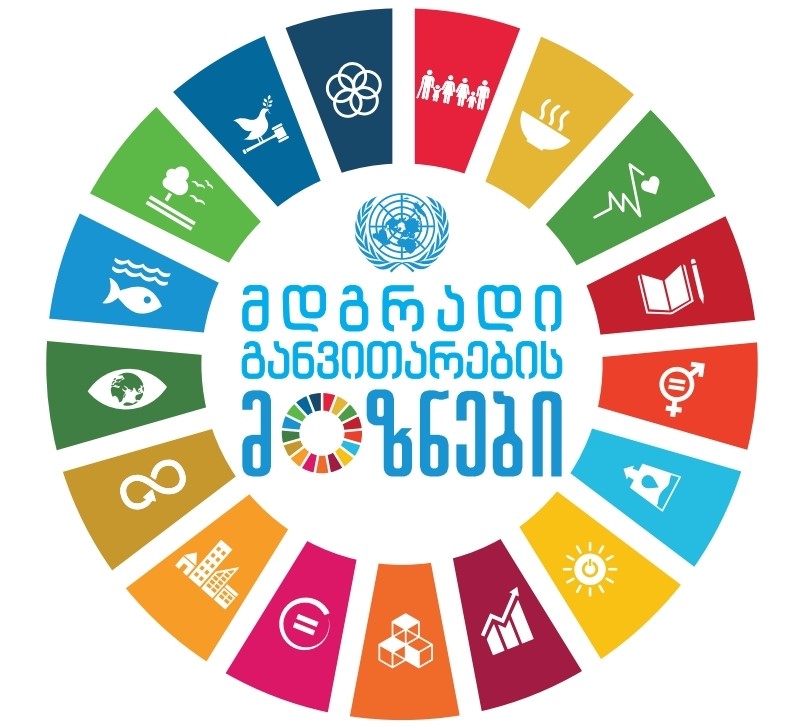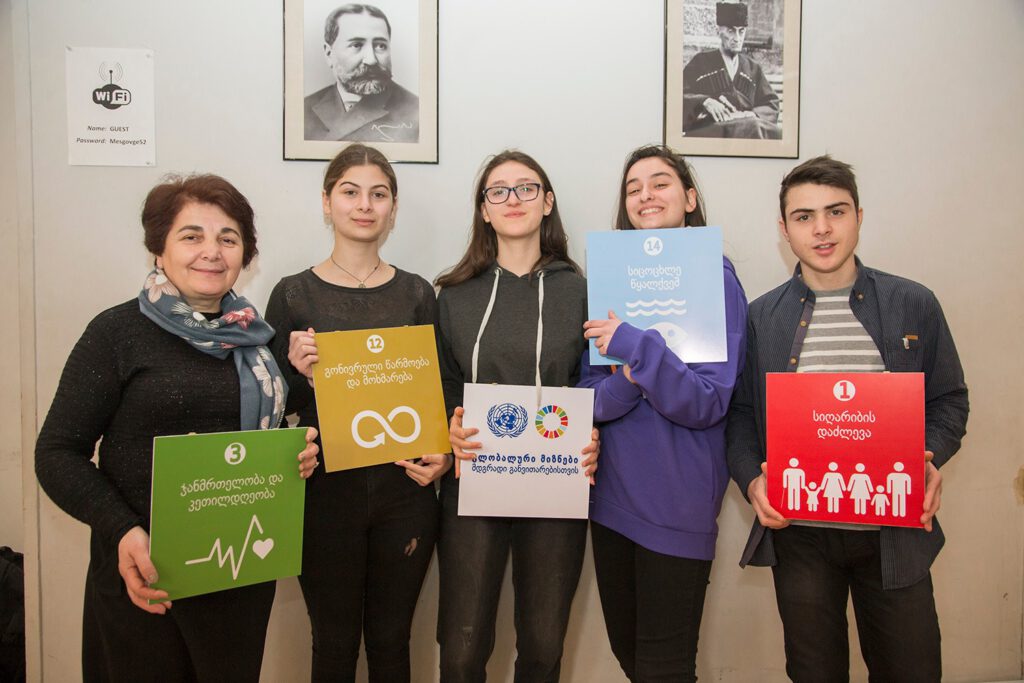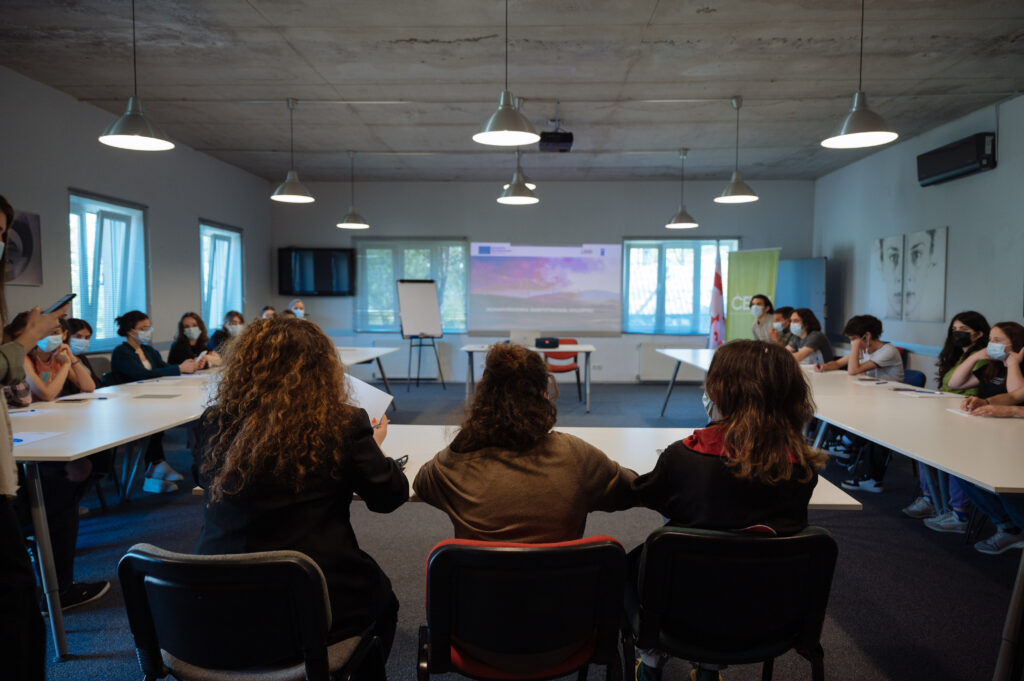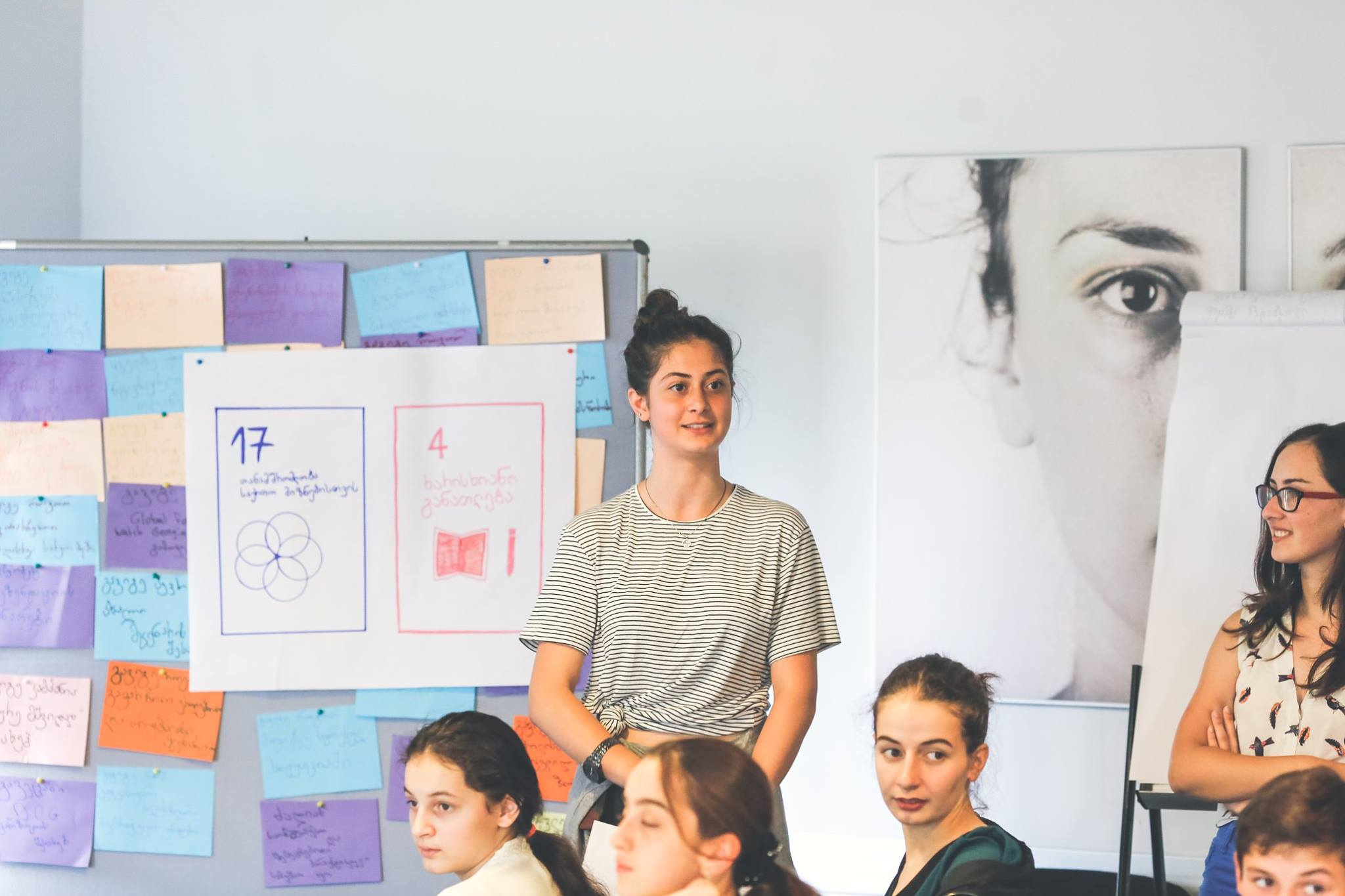Duration: 2021-2023
Geographic area: Tbilisi City, 5 big cities –
Batumi, Kutaisi, Zugdidi, Telavi, Rustavi, as pilot municipalities
Implemented by: CENN
Donor: GIZ on behalf of the German Federal Ministry for Economic Cooperation and
Development (BMZ)
The project “Continued Nationalisation of SDG in Georgia” assisted the Government of Georgia, in particular SDG Secretariat in implementation of the Sustainable Development Goals (SDGs) 2030 agenda in Georgia. By ensuring a participatory process and meaningful multi-stakeholder dialogue at national and local levels, it jump-started SDG implementation, furthered SDG localisation and continued the nationalisation of new targets.
With its activities, the project supported the development of institutions that ensure the long-term sustainability of the steps taken by the country toward the Sustainable Development Goals. By strengthening the capacity of the SDG Council’s Secretariat and Thematic Working Groups in Georgia, CENN’s project contributed to the country’s sustainable development
The SDG project had four overarching objectives: 1. Supporting the continuation of the SDG nationalisation process; 2. Increasing capacities of multi-sector Thematic Working Group members; 3. Supporting the Implementation of the SDG localisation Action Plan; 4. Raising awareness on SDGs in the regions of Georgia.

Supporting
Localisation
of SDGs
Localisation of SDGs in selected target municipalities, which are 5 big cities – Batumi, Kutaisi, Rustavi, Telavi and Zugdidi, was supported via the involvement and mobilisation of relevant representatives of self-governments and local non-state stakeholders. This activity followed Georgia’s SDG Localisation Action Plan and combined capacity building and awareness raising for local actors, such as local self-government bodies, local non-state stakeholders, non-governmental organisations, local media and local communities. To create a consistent and effective working process locally, the project provided local coordinators in each municipality.
- 5 Capacity-building trainings covered in a total of 85 local civil society representatives to understand the SDGs, main principles, the importance of multi-stakeholder partnership, roles of different sectors, mechanisms and possibilities of engagement in SDG localisation, implementation, monitoring and reporting;
- The municipal SDG priority documents were developed in 5 target municipalities through expert consultation work with Local governments;
- Public reviewing with both local self-government and non-state stakeholders in 5 target municipalities to discuss and review locally selected SDG priorities involving 113 participants in total;
- Public information campaigns on SDGs in 5 municipalities took place to enhance public knowledge of SDGs, the importance of realising SDGs, and the ways of involvement; 5 campaigns involved overall up to 250 young people, civil society, media and community representatives;
- Developed 5 videos displaying 5 “SDG heroes” – the local actors from the local municipalities working on the implementation of SDGs.

Increasing capacities
of SDG Council’s Working Group members
Civil Society representatives of the four thematic multi-stakeholder working groups (WGs) under the SDG Council were mobilized and received capacity building to support SDG implementation via monitoring and reporting.
- The first-ever joint sectoral meeting of CSOs involved in the WGs of the SDG Council of Georgia to share a vision for cooperation for SDGs involved 22 organisations.
- The baseline study on the CSOs’ needs, challenges, motivation and vision of work of the SDG Council Thematic Working Groups was implemented to develop the recommendations on how to ensure CSO engagement in the processes related to SDGs
- 4 day-long capacity-building workshops for CSOs engaged in the WGs involved 22 organisation representatives; workshops focused on how to get involved in SDG implementation, monitoring and reporting, the roles of different sectors, how to link CSO activities with SDGs etc.
- Strategic meeting of member CSOs to plan the year and joint work took place.
- Through the “CSO Consultations” process launched in the frame of the project, WG member CSOs prepared joint recommendations dedicated to the elimination of gaps and improvement of the existing national SDG matrix;
- CSO recommendations were also collected towards the improvement of the operation of the SDG Council, and a document was developed to be presented to SDG Council and other stakeholders

Strengthening
of SDG Secretariat
The project activities supported the strengthening of institutional capacities of the SDG Secretariat to effectively coordinate the multi-stakeholder process of SDG implementation and ensure the sustainable functioning of WGs under the SDG Council. The measures addressed the need to activate co-chairs of WGs in the process and provide support to the SDG Secretariat in engaging all relevant stakeholders.
The thematic multi-stakeholder working groups consist of state agencies, United Nations’ representations in Georgia, other international institutions and Non-governmental organisations, and private sector representatives. The actors of this platform are crucial parties in continuing the nationalisation of global goals, targets and indicators, making the country’s 2030 agenda more relevant given the global difficulties, such as the pandemic and the wars in the region. By mobilising these actors and building capacity, the project supported multi-sector dialogue.
As a result, WGs will continue working on SDG nationalisation and implementation and have the WG action plan for future guidance.
- First time after the Covid-19 pandemic, with the support of the project, the work of the SDG council thematic working groups has been renewed. The meetings of the co-chair state agencies, UN representatives and CSOs took place; as well as the separate meetings of each Thematic Working Groups and the annual meeting of the Council took place after a long pause;
- The joint work of CSO coordinators co-chairing the four Thematic Working Groups (organisations: CENN, GYLA, EFA and EPRC) was supported to ensure quality engagement of CSOs;
- For the first time, the Action Plan of the SDG Council TWGs was created; The creation process was inclusive and transparent, recommendations were collected from CSOs, and feedback from the SDG Secretariat was provided on decisions of integrating or not integrating the specific recommendations.
- SDG Newsletters was created with the project’s efforts and disseminated among stakeholders by the SDG Secretariat, increasing transparency and accountability of the processes.
- A non-member CSOs were introduce the work of the SDG Council and possibilities for their involvement within a meeting organised together with the SDG Secretariat;
- A total of 132,238 people were reached with different online SDG awarness campaigns of CENN;
- Based on training modules and materials of public awareness campaigns created within the project, the knowledge materials/handouts were developed.
- The capacity of co-chairs to be engaged in the implementation, monitoring and reporting of SDGs has been improved; As a result, 3 shadow reports were developed on SDG 4, 6 and 7 by CENN and co-chair organisation Coalition “Education for All”.
